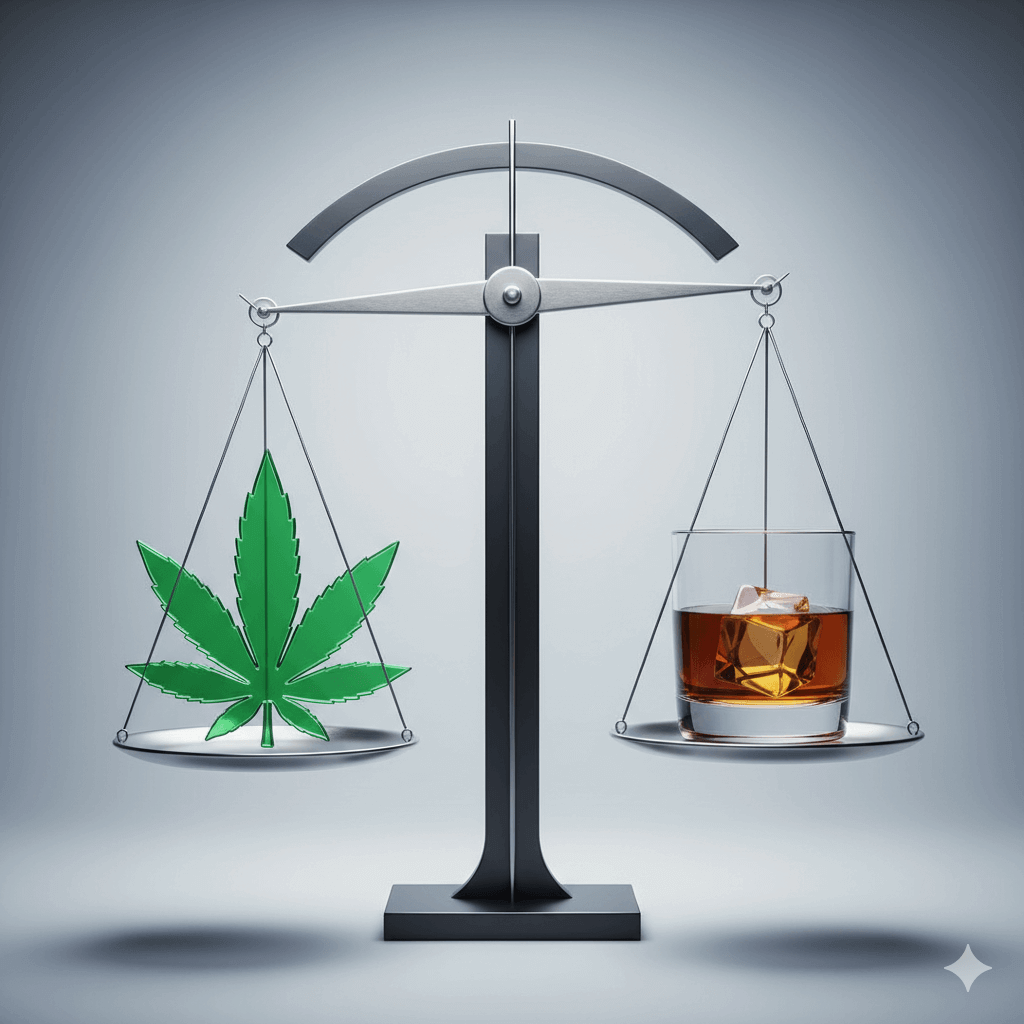
For generations, a strange paradox has lived at the heart of our culture. We’ve been taught to fear the supposed dangers of cannabis while culturally embracing alcohol—a substance responsible for countless health crises and societal problems. The cannabis vs. alcohol debate has raged for years, but here in 2025, with a mountain of new data and shifting public perception, the double standard is more glaring than ever.
It’s time to move past outdated propaganda and look at the facts. When we compare cannabis and alcohol head-to-head on health, societal impact, and legal fairness, the logical conclusion is unavoidable: our policies are dangerously out of sync with reality.
The Health Impact: A Tale of Two Substances
When it comes to the direct physical toll on the human body, the comparison isn’t even close.
According to the CDC and World Health Organization, chronic, excessive alcohol use is a leading cause of preventable death and is conclusively linked to liver disease, heart problems, stroke, and numerous types of cancer. The risk of a lethal overdose from alcohol is a tragic reality in emergency rooms every single day.
Cannabis, on the other hand, presents a vastly different profile. There has never been a recorded death from a cannabis overdose. While inhaling any smoke carries risks, cannabis itself has recognized therapeutic benefits, including pain management, anxiety relief, and seizure reduction. While dependency is possible, it occurs at a significantly lower rate than alcohol dependency. The scientific consensus is clear: from a purely physiological standpoint, alcohol is substantially more toxic and dangerous than cannabis.
The Societal Cost: Ripples of Harm
The impact of these substances extends far beyond the individual user. Alcohol is a well-documented factor in a shocking percentage of violent crimes, domestic abuse cases, and traffic fatalities. The economic burden—from healthcare costs to law enforcement and lost productivity—is estimated to be in the hundreds of billions of dollars annually in the U.S. alone.
In contrast, cannabis is not associated with increased aggression or violence. In fact, many studies in legalized states have shown no significant increase—and in some cases, a decrease—in crime rates. The primary societal harm from cannabis has never been its use, but rather its prohibition.
The Social Injustice of Prohibition
This brings us to the most indefensible part of the double standard of cannabis vs alcohol. For decades, a minor cannabis possession charge has been a tripwire that can ruin a person’s life. A criminal record can lock people out of jobs, housing, and educational opportunities, creating a cycle of poverty and punishment that disproportionately affects minority communities.
Meanwhile, alcohol is sold at every corner store, and its overconsumption is often laughed off as a normal part of life. We’ve created a system where one person’s recreational choice leads to a lifelong stigma, while another’s often leads to little more than a hangover.
Moving Toward a More Rational Future
When you weigh the evidence, the conclusion is inescapable. The ongoing federal prohibition of cannabis, in a country where alcohol is celebrated, is not based on science, safety, or justice. It is a relic of a bygone era.
The modern conversation around legalization is about more than just personal freedom; it’s about aligning our laws with scientific evidence. It’s about rectifying decades of social injustice and choosing policies that create a safer, more equitable society for everyone.
Stay Informed on What Matters
The conversation around cannabis is evolving fast. Sign up for our newsletter to get insightful analysis, wellness tips, and the latest news delivered directly to your inbox.

